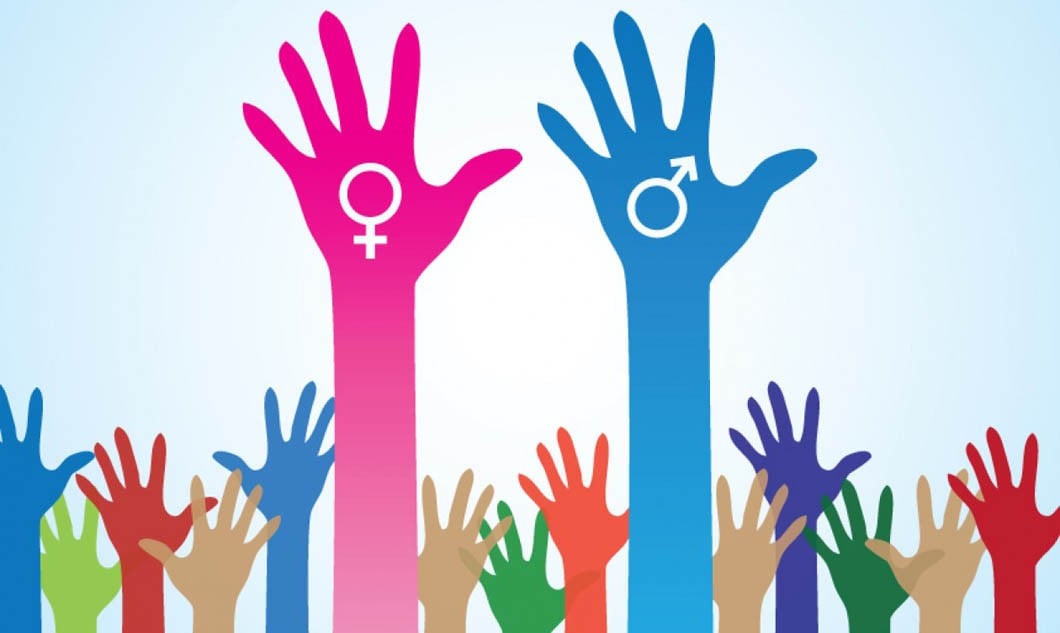
Gender equality does not challenge biology but sociology. It doesn’t revisit nature but nurture

In our country, clergy and other right wingers weave intricate conspiracies about how the practitioners of change plot with the West to undermine the Islamic spirit of Pakistan. As a result, they attempt to block any change that they believe is allegedly at the cost of Islam. Probably, the religious right is nowhere as resistant to change as when it comes to women’s rights. The religious right’s opposition to Punjab Protection of Women Against Violence Act 2016 is a case in point.
A major misunderstanding is to equate gender with sex. The word "gender" is sex neutral. It does not refer to the biological difference between male and female. In other words, gender is not the alternate word for sex, which, unlike gender, points to biological distinction between men and women. In fact, "gender" refers to socially constructed roles and responsibilities assigned to both male and female in a given society.
The issue is that these socially constructed roles, which vary from society to society, are biased in favour of males in our case. Females are treated less favourably on the ground of their sex. Thanks to this, unlike males, females have fewer opportunities to pursue their passions.
How to rectify?
"Gender equality" seeks parity of social responsibilities between males and females. It is a drive to engender that women have equal opportunities in every walk of life as men to realise their full potential. A girl, like a boy, has the equal potential to discharge any duty she chooses to perform and her sex is no impediment to the pursuit of her passion. The rationale is simple: one’s being male or female has nothing to do with one’s performing any social role. The reality speaks for itself.
Perhaps there is no field out there where women are not participating all along with their men counterparts, ranging from politics and economics to sports and entertainment; the list is not exhaustive. If we do not see women performing in every segment of society in our part of the world or at least not as numerous as men, it is not that they cannot perform those roles but because they are denied to perform as per social constraints of the society!
Sex does not determine social roles. To put the things in perspective, a woman, who gives birth to a baby does not necessarily have to rear it just because she is her mother. The baby’s father, who earns a livelihood, is equally responsible to look after her in home in exchange of his wife’s role to eke out a living. This may look strange to many and unnatural to others. But the stark truth is that nature has got nothing to do with the otherwise social roles that societies determine. Gender equality does not deny that men and women are different biologically or physically for that reason. What it seeks is to revisit that being female does not prejudice her claim to equal rights and opportunities.
Why is gender equality essential?
It is the demand of justice and equity. Discrimination in any form is dreadful. Different people have different talent and talent needs expression. Unlocking human potential and honing it require equal opportunities without any discrimination across the male-female divide. Every girl can be as successful as Malala, not necessarily as an education activist though, in any field aligned with her passion provided she has the opportunity to demonstrate her talent. By denying our females the opportunities to exhibit their talent we lose the very talent that is inevitable for our progress as a country.
Does it mean that male and female are not different?
The difference in human physique does have a clue. Gender equality does not challenge biology but sociology. It doesn’t revisit nature but nurture. Of course there is a limit to gender equality. In other words, we can revisit roles, reshuffle them and redistribute them equitably up to a point where nature intervenes. There begins the world of biological distinction. Here roles are not ‘nurtural’ but natural. Bearing a child is a female’s sacred biological role, which a male is barred from performing by nature.
In essence, gender equality does not intrude in nature not only because it doesn’t seek to or ideally it shouldn’t; but also because it can’t do so. Of course, medical science has advanced to the extent of changing one’s sex too; but it has only exhibited its limit to alter the certain roles associated with human’s biology: a female will always bear a baby irrespective of a male transformed into a female. Science can change one’s sex but not the natural role associated with it.
How to nurture gender equality?
The biggest obstacle to ensuring equal rights to men and women is patriarchy, which is itself the product of past institutions such as societal values, men’s interpretation of religion and education system to name a few. Hardly is novelty welcome in conservative societies. The need is never to confront the status quo but to challenge it only through peaceful means.
Teaching gender should be one of the major features of our syllabi. Today’s students are tomorrow’s leaders who will acquire various leadership roles.
Secondly, pro-female laws should be enacted and vigorously implemented, seeking to outlaw any discrimination done on the basis of male-female dichotomy.
Thirdly, media and entertainment industry should play their constructive role in inculcating equality between men and women and boys and girls. In the retrospect, UN’s Family Day on May 15 reminded us of the fact that no happy and healthy family exists until we treat our female at par with our male. Equity is a female’s inalienable right too!